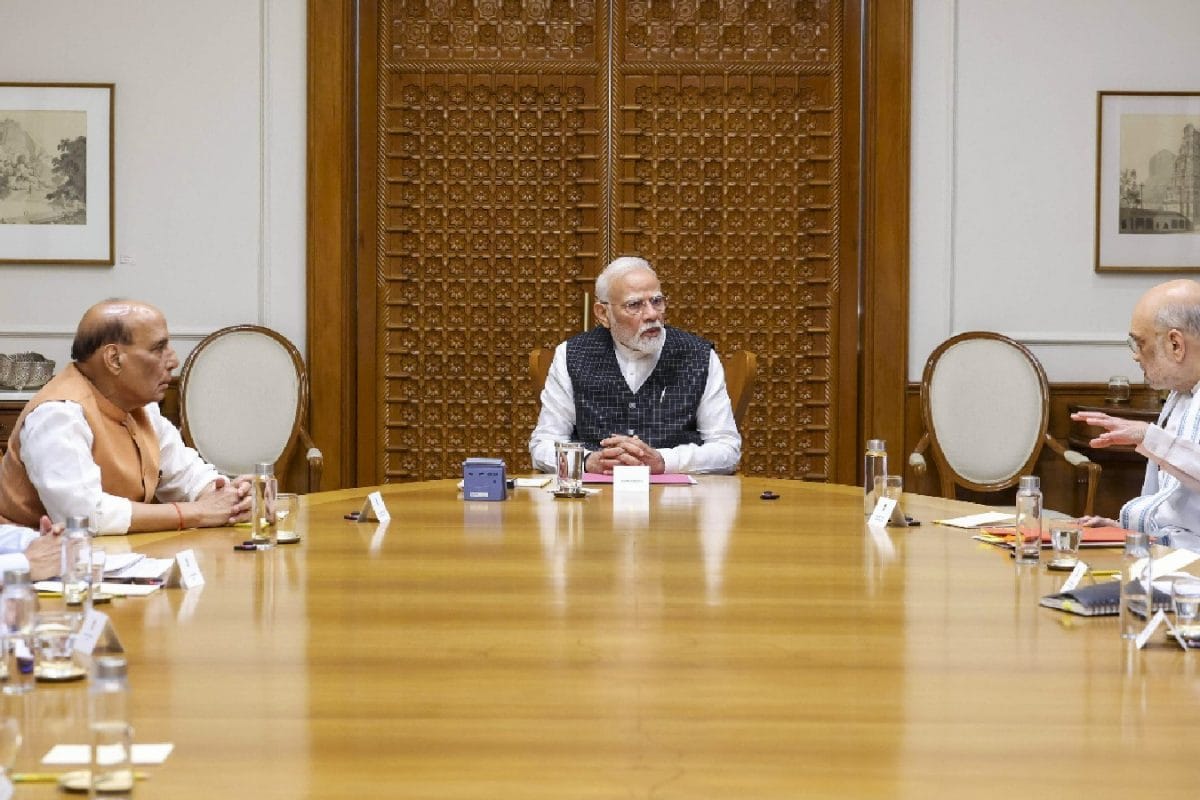

Prime Minister Narendra Modi chaired a meeting of the Cabinet Committee on Security (CCS) on May 14, 2025, marking the first such meeting since the ceasefire agreement between India and Pakistan. The meeting, attended by Defence Minister Rajnath Singh and Home Minister Amit Shah, aimed to assess the latest security situation in the region following a period of heightened tensions and military exchanges. Following the CCS meeting, the Prime Minister also chaired a meeting of the Union Cabinet.
The ceasefire, which took effect on May 10, 2025, followed a series of intense cross-border drone and missile strikes between the two nations. Tensions had escalated after a deadly militant attack in Pahalgam on April 22, in Indian-administered Kashmir, where 26 civilians were killed. A little-known armed group, The Resistance Front (TRF), claimed responsibility, with India accusing Pakistan of backing it, a charge denied by Islamabad.
In response to the Pahalgam attack, India launched "Operation Sindoor" on May 7, conducting precision strikes on what it described as terrorist bases in Pakistan-administered Kashmir and several sites in Pakistan's Punjab province. Pakistan retaliated with its own strikes, leading to a dangerous escalation in hostilities, marking the first drone battle between the two nuclear-armed nations.
The conflict saw both sides targeting military installations, including air bases and ammunition depots. India claimed to have inflicted significant damage on Pakistani airbases at Skardu, Sargodha, Jacobabad, and Bholari, while Pakistan alleged its forces had struck Indian military sites. Pakistan's military announced that 11 of its personnel were killed and 78 wounded in the military confrontation since India launched Operation Sindoor. Defence Minister Rajnath Singh stated that at least 100 hardcore terrorists and their associates were killed in Indian strikes on terror sites in Pakistan and Pakistan-occupied-Kashmir (PoK) under the ongoing Operation Sindoor.
Amidst growing concerns of a full-blown war, the United States, along with other countries like Saudi Arabia, Iran, the UAE, and the UK, stepped in to mediate a ceasefire. US President Donald Trump announced the ceasefire on May 10, which was later confirmed by both India and Pakistan.
Despite the ceasefire agreement, initial reports indicated accusations of violations from both sides. However, the ceasefire appears to be holding, with military officials from both countries agreeing to take immediate steps to reduce their troops' presence along the borders.
The recent tensions also led to diplomatic repercussions, with both India and Pakistan expelling each other's High Commission staffers on charges of espionage. India expelled a Pakistan High Commission staffer for links to a spying case, and Pakistan followed suit by expelling an Indian High Commission staffer in Islamabad.
The CCS meeting on May 14 took place against this backdrop of a fragile ceasefire and continued diplomatic tensions. Discussions likely encompassed India's post-Operation Sindoor roadmap, the ongoing investigation into the Pahalgam terror attack, and a review of border security. The meeting also served as an opportunity to reiterate India's long-standing position that Jammu and Kashmir is a bilateral issue to be addressed within the framework of India-Pakistan ties.